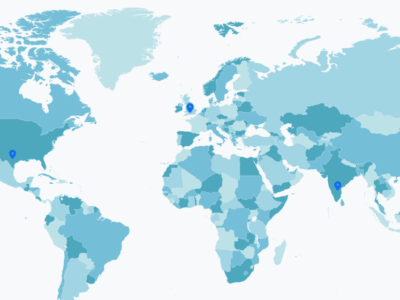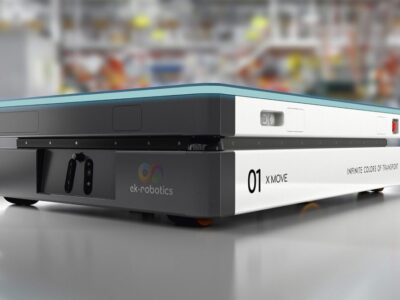
Nissan sells battery business to IoT energy company
Nissan has been trying to sell the Automotive Energy Supply Corporation (“AESC”) to other automotive battery makers for over a year with no success. Instead, it has turned to a developer of wind turbines and systems for the Internet of Things (IoT). The company developed the EnOS intelligent IoT operating system which currently connects more than 50 million smart devices used for wind, solar, energy storage, charging networks, electric vehicles, and home energy management. Envision is also a global leader in smart wind turbine technology.
The new boss of the UK’s £80m battery centre previously ran the plant in Sunderland (above), which had previously been looking to GSR Capital as a buyer. The GSR deal was said to be worth $1bn but the value of the Envision stage was not disclosed.
In addition to promoting the research and development of AESC Li-ion batteries, Envision intends to integrate its IoT technology to make intelligent batteries and incorporate millions of electric vehicles into a future energy network that is both clean and intelligent. It currenty manages 100GW of energy assets globally, integrating systems from Sonnen, ChargePoint, AutoGrid, and Bazefield.
“AESC’s lithium-ion batteries are among the most advanced, safe, and reliable in the industry. Their ability to power more than 340,000 Nissan electric vehicles without a single critical incident demonstrates AESC’s excellence in technology, design, thermal management, and energy management,” said Lei Zhang, Envision’s Founder and CEO. “From an energy perspective, electric vehicles are mobile intelligent power stations, and the growing number of electric vehicles will have a huge impact on the electricity grid. At the same time, customer anxiety related to the range of electric batteries and charge time is limiting the development of the sector. Envison’s smart IoT technology will make both the batteries and the charging process more intelligent. This will enable electric vehicles to be integrated into an energy eco-system, and facilitate the intelligent, dynamic balancing of energy usage and generation in a world powered by fragmented renewable energy systems.”
“We are pleased to have secured a definitive agreement with Envision,” said Yasuhiro Yamauchi, Nissan’s Chief Competitive Officer. “The transaction will enable Nissan to concentrate on developing and producing market-leading electric vehicles – in line with the goals set in our midterm plan Nissan M.O.V.E. to 2022. We are confident that Envision will be a strong, long-term owner of the new company and that it will further grow as a battery company with increased competitiveness.”
Envision says it intends to upgrade AESC’s existing production facilities at Sunderland, UK, Japan and the US to enable the production of higher density, long-range electric batteries. Envision also intends to open new production facilities in Wuxi, China, enabling AESC to serve the fast-growing Chinese market for electric vehicle batteries and stationary lithium-ion batteries. This will enable AESC to continuously reduce the cost of lithium-ion batteries and provide a unique presence in all major automotive markets globally, differentiating itself from its key competitors.
Related stories:
 If you enjoyed this article, you will like the following ones: don't miss them by subscribing to :
eeNews on Google News
If you enjoyed this article, you will like the following ones: don't miss them by subscribing to :
eeNews on Google News




